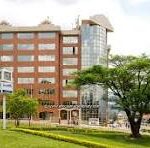Sometimes it is in the gap between things that the truth emerges.
In recent years Europe has been on the receiving end of one of the most significant migrant crises in history. In 2015, in just a single year, countries such as Germany and Sweden found themselves adding 2% to their respective populations. Although much of the public continue to labour under the misapprehension that those still coming are fleeing the Syrian civil war; in fact, the majority of those now entering Europe are from Africa, particularly from sub-Saharan Africa.
Although the European Union successfully bribed Turkish President Recep Tayyip Erdogan last year — inducing him to slow the flow of migrants heading through Turkey into Greece — Italy has received almost 100,000 people so far this year. Spain — which had ducked much of the movement of recent years — now finds itself receiving thousands of people who are sometimes (as in this memorable footage from earlier this month) simply landing on the country’s beaches and running straight into the country. In doing so, they are not only breaking into Europe in a fashion that is illegal, but flouting all the asylum protocols, and other protocols, however inadequate, that are meant to exist.
In reaction to such events, the Spanish authorities have done something extraordinary. They have gone the way of the Italian authorities and made more efforts to intercept boats heading towards the country. Not in order to turn them around or block them, but in order to “rescue” them. In merely one day last week, the Spanish coastguards “rescued” 600 migrants. The purpose of the quotation marks around “rescue” is because its use in this context is highly contestable. Somebody may be rescued from a burning car, or rescued from a sinking boat. But if thousands of people intentionally head across narrow stretches of water, it can hardly be said that each and every one of them has been “rescued’.
What have they been rescued from? They may be rescued from war. Or they may be rescued from poverty. Or slightly less rosy economic prospects than someone born in Spain. Most of these people have simply been rescued from Africa or whatever their country of origin. This situation leads to the questions which European politicians even now refuse to address — which is whether Europe should indeed be “rescuing” anyone who ends up in a boat near Europe.
Whenever they are polled, the public in Europe consistently say that they want the migration to slow down or stop. This is a majority opinion in every European country. Across the EU as a whole, a recent survey found that 76% of the European public think that the European Union’s handling of the whole crisis has been poor. But it is in the gap between the treatment of two actors in this crisis that we can discern a terrible fact about the fate of Europe.
Throughout the crisis of recent years — and especially since the height of the crisis in 2015 — the official vessels operated by the European states have been joined by members of non-governmental organsations (NGOs), either on the vessels or running vessels of their own. A significant amount of the “rescue” part of the migrant crisis (finding boats and transferring those onboard onto safe vessels or guiding their vessels into port) has been done by NGOs. Organisations such as Save the Children and Médecins sans Frontières have been invited to do this by European government agencies, and many of them receive significant levels of government funding as well as charitable giving from the public.
Yet, this summer, even more than in previous years, it has become plain that some of the NGOs working in the Mediterranean are acting as something more than intermediaries. Many have in fact been acting as facilitators. Agents who have infiltrated the NGO groups have found collusion between the NGOs and the smugglers networks, including coordination with these brutal and mercenary organisations. Investigations have found NGOs to have been breaking their own agreed operating rules by coordinating locations to meet and pick up vessels sent out by the smugglers. This makes the NGOs effectively no more than the benign face of the smuggling networks. Undercover workers have also discovered NGOs handing vessels back to the smugglers’ networks, effectively helping them to continue their criminal enterprise indefinitely.
 Some NGOs that work to pick up migrants from boats in the Mediterranean and transport them to Europe have been discovered handing vessels back to smuggler networks, helping their criminal enterprise. Pictured: A small rubber boat overcrowded with migrants passes a boat set alight by the crews of Phoenix, a vessel operated by the “Migrant Offshore Aid Station” (MOAS) NGO, after all passengers were evacuated, on May 18, 2017. MOAS’s protocol of torching the smuggling boats after debarkation prevents smugglers from reusing the vessel. (Photo by Chris McGrath/Getty Images) Some NGOs that work to pick up migrants from boats in the Mediterranean and transport them to Europe have been discovered handing vessels back to smuggler networks, helping their criminal enterprise. Pictured: A small rubber boat overcrowded with migrants passes a boat set alight by the crews of Phoenix, a vessel operated by the “Migrant Offshore Aid Station” (MOAS) NGO, after all passengers were evacuated, on May 18, 2017. MOAS’s protocol of torching the smuggling boats after debarkation prevents smugglers from reusing the vessel. (Photo by Chris McGrath/Getty Images) |
In frontline countries such as Italy, this unlawful activity has been causing growing public anger. Elsewhere in Europe, the notion that these NGOs are not entirely angelic in their operations is taking longer to sink in. But compare the reaction to them — in receipt as they continue to be of large quantities of public and governmental money — with a group that has a different view to that of the NGOs.
At the start of this summer, a group called “Defend Europe” raised money to hire and sail a ship off the coast of Italy. The ship aimed to deter migrants from crossing the Mediterranean. One activist was recorded saying, “We want to get a crew, equip a boat and set sail to the Mediterranean ocean to chase down the enemies of Europe.” Some of the other characters and rhetoric associated with this movement may be equally unsavoury. For some weeks, the “Defend Europe” vessel, with banners prominently displayed, has floated in the Mediterranean and told people in a variety of languages, “No Way. You will not make Europe home” and “Stop human trafficking.”
Now one may abhor this tactic, approve of it, or feel a whole range of emotions in between. The treatment of “Defend Europe’, however, compared to the pro-migration NGOs, is startling. In recent weeks, when the “Defend Europe” vessel had some minor technical problems, it caused undisguised glee in the Western media. The suggestion that a pro-migration NGO vessel might have to rescue it caused even more delight. Now the group has had its sources of funding withdrawn. Not that “Defend Europe” would ever have received government aid. Far from it. But this past week, the US-based crowd-funding website Patreon shut down the group’s profile page, making it impossible for them to raise funds through it. The ostensible cause was that Patreon believed the actions of “Defend Europe” were “likely to cause loss of life.”
It may easily be argued, of course, that pro-migration NGOs that are colluding with smuggling gangs and assisting them in their work are “likely to cause loss of life”, if not in the Mediterranean then in encouraging thousands of people to give their money to smuggling gangs and encouraging millions more to set out for a new life in a continent which is increasingly less likely to receive them with warmth. A group that seeks to oppose Europe’s current self-destructive trajectory can now not even source independent financial support. Groups, however, that continue to push Europe along its current trajectory continue to get all the official support they need. In the difference in reaction to these two groups lies a significant part of the story of the ruin of a continent.
Douglas Murray, British author, commentator and public affairs analyst, is based in London, England. His latest book, an international best-seller, is “The Strange Death of Europe: Immigration, Identity, Islam.”

























